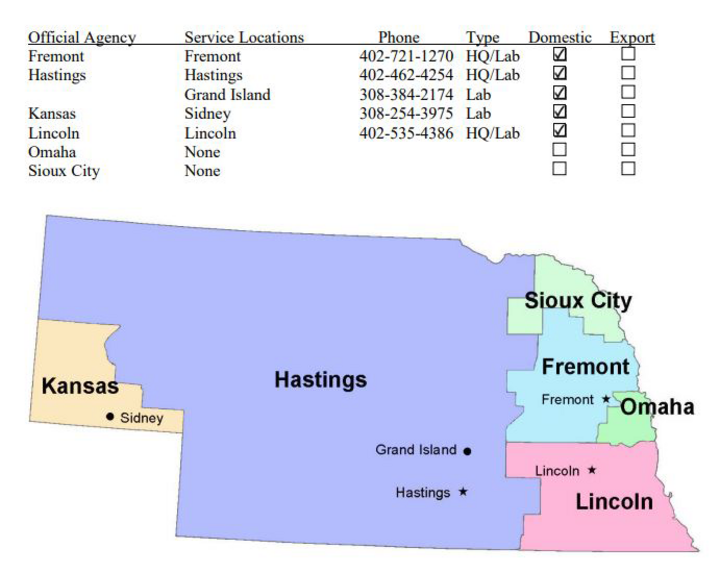The Nebraska Department of Agriculture (NDA) is encouraging producers and feed manufacturers to be mindful of mycotoxin levels in corn being fed to livestock this winter. Mycotoxins are naturally occurring mold fungi that affects corn.
“Summer drought coupled with wet harvest conditions creates a high risk for mycotoxins to grow,” said NDA Director Steve Wellman. “Fortunately, we have not seen alarming concentrations of mycotoxins in Nebraska like our neighboring states, but it is important for producers to remain vigilant to help protect the safety and well-being of their livestock herds.”
NDA Animal and Plant Health inspectors collect corn samples at grain elevators across the state each year during harvest. The NDA laboratory tests the samples for mycotoxins, including aflatoxin and fumonisin, as part of a collaborative effort between NDA and the Food and Drug Administration (FDA).
Test results showed no detectable levels of aflatoxin, but did indicate an increased presence of fumonisin in several of the samples.
Livestock fed feedstuffs with a high enough concentration of fumonisin can cause harm or even death. The most susceptible animals include horses, rabbits and swine. Cattle and poultry seem to have a higher tolerance for fumonisin. The FDA has established safe feeding recommendations for grains containing significant levels of fumonisin.
More Information

CropWatch Note: Nebraska Extension has three publications relative to this topic:
- Understanding Fungal (Mold) Toxins (Mycotoxins) (G1513)
- Use of Feed Contaminated with Fungal (Mold) Toxins (Mycotoxins) (G1514)
- Sampling and Analyzing Feed for Fungal (Mold) Toxins (Mycotoxins) (G1515)
For a multi-state list of facilities, check out the USDA Official Agency Directory for the Federal Grain Inspection Service and other offices.
